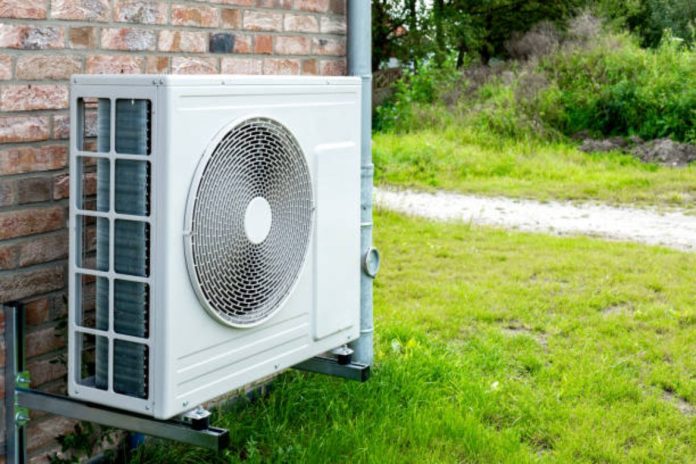When it comes to energy efficiency and eco-friendly solutions for home heating and cooling, heat pumps have become increasingly popular. Homeowners are often faced with a choice between air source and ground source heat pumps. But which is the best option for your home? Both types of heat pumps offer impressive energy savings and the potential to reduce carbon emissions, but each has its own pros and cons. This guide will help you decide which system suits your needs best.
Air Source vs Ground Source Heat Pumps: Choosing the Right Solution for Your Home
Air Source Heat Pumps
An air source heat pump extracts heat from the air outside and transfers it indoors to heat your home. In warmer weather, the process can be reversed, cooling your house instead. These systems are popular due to their lower installation cost compared to ground source pumps, and they are generally easier to install.
Pros:
- Cost-Effective Installation: Air source heat pumps are more affordable to install than their ground source counterparts, making them accessible to a wider range of homeowners.
- Space Efficiency: Since air source heat pumps don’t require extensive underground pipework, they are ideal for smaller properties or urban homes where outdoor space is limited.
- Versatility: Air source pumps can function in reverse, providing both heating and cooling depending on the season, offering year-round comfort.
Cons:
- Performance in Extreme Cold: Air source heat pumps become less efficient in very cold climates. In such conditions, you may need a backup heating system to maintain consistent indoor temperatures.
- Noise Levels: While newer models are designed to minimize noise, air source units can be somewhat noisy when running, especially if not properly maintained.
Ground Source Heat Pumps
A ground source heat pump (also known as a geothermal heat pump) works by drawing heat from the ground via a network of pipes buried in your garden or beneath your property. This type of system is typically more efficient than air source heat pumps because the ground maintains a more stable temperature year-round.
Pros:
- High Efficiency: Ground source heat pumps are incredibly efficient, offering greater energy savings in the long term. They can maintain stable performance even during extreme cold or heat.
- Quiet Operation: Since the heat exchange occurs underground, ground source systems are much quieter compared to air source pumps.
- Durability: These systems tend to last longer than air source pumps, offering a more permanent solution to heating and cooling your home.
Cons:
- High Initial Costs: The installation of ground source heat pumps is significantly more expensive due to the need for excavation and pipe installation.
- Requires Large Outdoor Space: You’ll need ample outdoor space to install the underground loop system, which may not be feasible for all homeowners.
- Longer Payback Period: While they are more efficient, the high upfront cost means it may take longer to recoup your investment through energy savings.
Which is Right for You?
The choice between air source and ground source heat pumps largely depends on your property, climate, and budget. If you live in a milder climate and have limited outdoor space, an air source heat pump may be the best solution. On the other hand, if you have the budget for a higher initial investment and want long-term efficiency, a ground source heat pump is a fantastic choice, particularly for those in colder climates.
Best Heat Pump: How Heat Pumps Work
Regardless of whether you opt for an air source or ground source heat pump, the basic principle remains the same: heat pumps transfer heat from one place to another using electricity. They do this by circulating a refrigerant through a cycle of evaporation and condensation, moving heat between the indoors and outdoors.
In heating mode, the refrigerant absorbs heat from the outside air (or ground) and brings it inside, releasing the heat to warm your home. In cooling mode, the process is reversed.
The Efficiency of Heat Pumps
The beauty of heat pumps lies in their efficiency. Instead of generating heat by burning fuel, they move existing heat. This process uses much less energy than traditional heating systems, making heat pumps an excellent way to reduce carbon emissions. In fact, for every unit of electricity used, heat pumps can generate three to four units of heat, a far greater efficiency compared to conventional electric heating systems.
Environmental Benefits
One of the key reasons to consider installing a heat pump is its potential to lower your household’s carbon footprint. Unlike oil or gas boilers that burn fossil fuels, heat pumps rely on electricity, which can increasingly come from renewable sources such as wind, solar, or hydroelectric power. By switching to a heat pump, you’re not only cutting down on your utility bills but also playing a crucial role in helping the planet by reducing greenhouse gas emissions.
Choosing the Best Heat Pump for Your Home
The best heat pump for your home will depend on various factors such as your climate, the size of your home, and your available outdoor space. Consider an air source heat pump if you’re looking for a cost-effective solution with easier installation. If you’re aiming for higher efficiency and don’t mind the upfront cost, a ground source heat pump may be the best fit.
Conclusion
Both air source and ground source heat pumps offer substantial benefits, from reducing energy costs to helping reduce carbon emissions. Choosing the right system for your home depends on your budget, space, and long-term efficiency goals. Regardless of your choice, investing in a heat pump is a smart, eco-friendly decision that will provide you with efficient heating and cooling for years to come.









